The Marvels of Gelatin: Health Benefits Unveiled
What Is Gelatin?
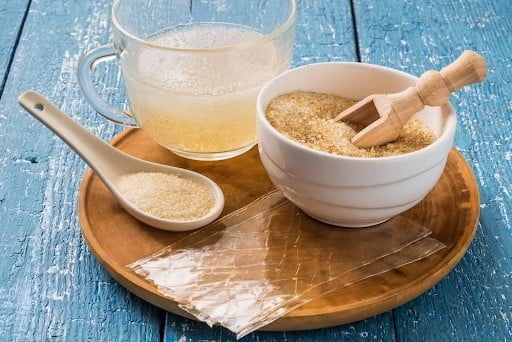
Gelatin is a type of protein commonly used in food processing, both in sweet and savory dishes. It is extracted from collagen found in animal bones, skin, or various plant sources like red algae and fruits. The name “gelatin” originates from the Latin word “gelatus,” which aptly describes its function: forming a gel-like substance in water. It is inherently odorless and tasteless, though some may detect a slight odor.
Numerous types of gelatin can be found in bones and skin, formed through the hydrolysis of polypeptides at different temperatures, resulting in either transparent or slightly yellow varieties.
When chilled, gelatin thickens into a jelly-like substance. Consequently, it’s an indispensable component in jelly candies, jellies, and even ice creams, sauces, or soups that require thickness and consistency. There are two common types of gelatin: gelatin powder and gelatin leaves. They are often confused with agar-agar as both can bind food, causing them to congeal. However, they are entirely distinct. Notably:
They can set quickly, simply dissolve in a liquid, and the gelatin powder will swell and thicken the food.
Food items made with gelatin powder are typically soft, silky, and resemble cream. They can withstand low temperatures, making them suitable for long-term storage in the freezer.
A small caveat is that gelatin may trigger allergies in some individuals, resulting in feelings of fullness, burping, and indigestion after consumption. Consequently, those who have experienced gelatin allergies are advised to scrutinize food labels for its presence. Individuals with chronic conditions such as liver disease, heart disease, kidney disease, or bleeding disorders should also avoid gelatin.
Applications of Gelatin Powder
Boosting Skin, Hair, and Nails

For women looking to enhance their skin’s beauty, gelatin provides amino acids and supports collagen production, essential for skin repair and rejuvenation. The use of cosmetics containing gelatin contributes to fair, smooth skin. They also boost skin moisture and elasticity while reducing signs of aging like wrinkles, sagging, and sun damage.
Beneficial for Joints, May Aid Joint Recovery
Individuals suffering from joint pain in their hands and feet are often advised by doctors to consume gelatin supplements daily. This helps alleviate pain swiftly, stimulate collagen and cartilage formation, and maintain the integrity of joint tissues, making your joints stronger and more flexible.
Enhancing Sleep Quality

The amino acids found in gelatin have been proven to boost your mood, reduce stress, and alleviate depression. So, if you’re battling stress or struggling to get a restful night’s sleep, consider using gelatin before bedtime. It can help improve the quality of your sleep, leading to deeper and more rejuvenating slumbers.
A Culinary Ingredient

Gelatin powder is commonly used in baking, making desserts, setting food, pharmaceuticals, and cosmetics. When you add gelatin to baking, it binds other ingredients, giving the finished product a smoother texture.
It is often used to create jelly-based dishes, gummy candies, various desserts, ice creams, meat aspics, and more. Additionally, gelatin is a favored ingredient in baking, with popular treats like mousse cakes, puddings, and cream cakes being made using gelatin.
With these applications in mind, you might wonder where to buy gelatin powder for your culinary creations. We’ll delve into that in the later part of this article.
Gelatin also plays a vital role in making bone broth. After simmering bone broth thoroughly, you can add a bit of gelatin to turn it into a gel, perfect for long-term storage in your refrigerator. This is a cooking technique beloved by those who prefer mild flavors and prioritize overall health.
Applications in Food Processing Industries
As a Binding Agent in Meat and Seafood Processing
Gelatin aids in binding and forming membranes in meat products, shaping the appearance of canned meat products. It is often used in the production of sausages, providing elasticity and improved flavor.
Utilized in Confectionery Manufacturing
Gummy bear candies and chewing gum utilize gelatin to maintain sugar crystal structure and form the core of gummy candies. It is also used to create toppings, mousse, and chiffon in confectionery products such as candy cotton, chewing gum, compressed tablets, nougat nut candies, and more.
Manufacturing Dairy and Fruit Wines
Gelatin serves as a stabilizing agent, foaming agent, and binder, particularly in yogurt and dairy products. It is a clarifying agent for fruit wines and fruit juices, ensuring their clarity.
What’s Inside Gelatin
Gelatin is composed of over 20 valuable amino acids, which provide various health benefits to the human body. Among the most beneficial amino acids are:
Proline, when combined with vitamin C, transforms into hydroxyproline, which aids in building healthy skin, healing wounds, and reducing joint pain.
Alanine helps prevent nighttime hypoglycemia, reducing dehydration, stress, fatigue, and other medical conditions, making it a valuable asset in medical treatments.
Arginine relaxes arteries, promoting wound healing, facilitating toxin removal from the kidneys, and maintaining immune and endocrine functions.
The proteins in gelatin, such as glycine and proline, assist in repairing intestinal damage, enhancing digestion, and reducing brain inflammation.
Gelatin Powder vs. Agar Powder: Unveiling the Culinary Enigma
When it comes to the arcane realm of food thickening agents, many a gastronome finds themselves ensnared in the enigma of gelatin powder versus agar powder. Let us embark on a journey to unravel the mystique surrounding these two culinary contenders.
Gelatin Powder:
Gelatin powder, the alchemical creation spun from the essence of animal collagen, typically sourced from the bones and hides of livestock and poultry. This extraction and purification process ensures that gelatin powder isn’t just a mere thickening agent; it possesses the uncanny ability to bestow a silken, velvety allure upon culinary creations. It’s the maestro behind decadent pastries, exquisite custards, and ethereal jellies.
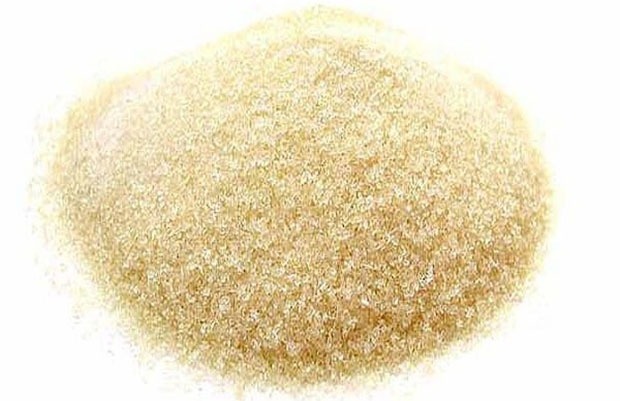
One of its crowning attributes is its robust gelling prowess. A mere sprinkling of gelatin powder can transform liquid into a denser, more substantial state, making it a revered tool in the repertoire of many culinary conjurers.
Agar Powder:
On the flip side, agar powder emerges from the bosom of nature, an elixir distilled from red algae and seaweed. It’s the secret to crafting delectable and nutritious agar desserts, with one crucial caveat – it lacks the sheer gelling might of gelatin powder. Instead, agar powder bestows a supple, yielding texture to dishes.
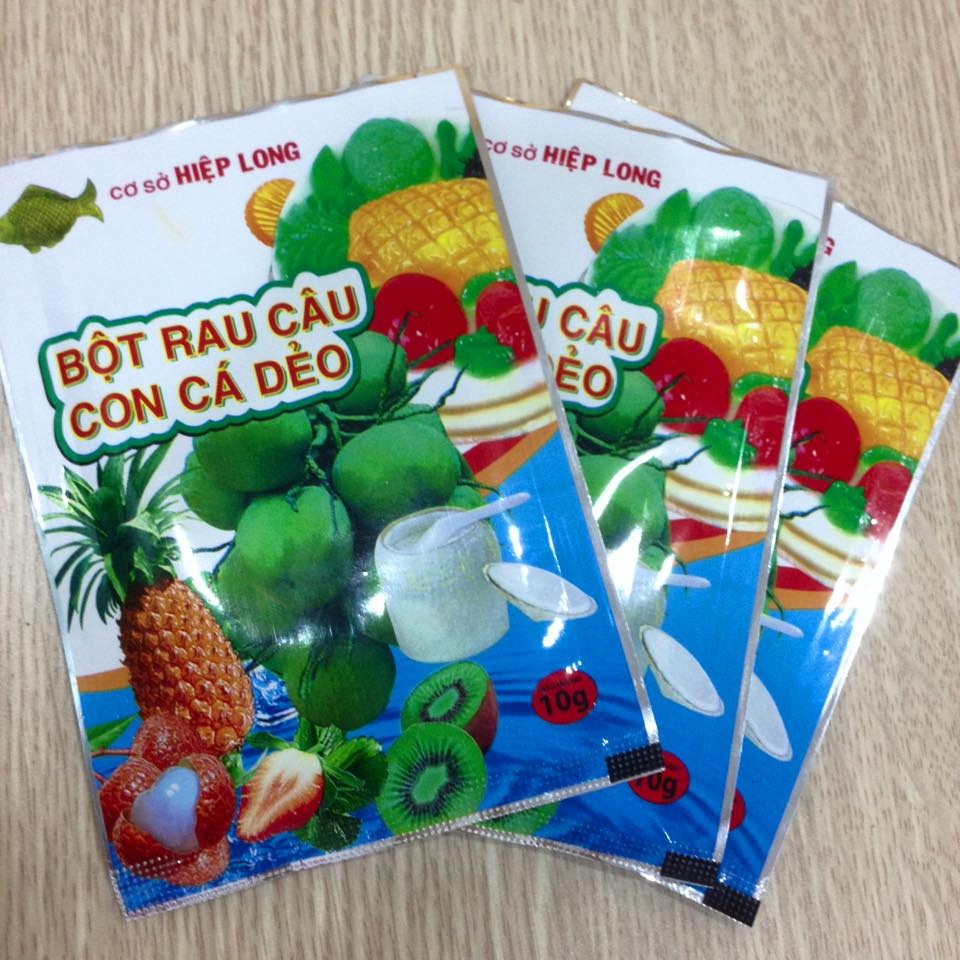
The crux of their disparity lies in origin and fundamental essence. Gelatin hails from the animal kingdom, whereas agar powder is a gift from the botanical realm. Consequently, those who tread the path of vegetarianism often embrace agar powder, while gelatin caters to those unencumbered by such dietary considerations.
Choosing Your Elixir:
The choice between gelatin powder and agar powder hinges upon your culinary intent and the specific nutritional demands of your recipe. If rapid and potent gelling is your quest, gelatin reigns supreme. Nevertheless, if you seek a natural, plant-based ingredient suitable for vegetarian diets, agar powder stands as a noble choice.
Gelatin Sheets: The Epitome of Culinary Convenience
Beyond gelatin and agar powder, we encounter yet another facet of this culinary kaleidoscope – gelatin sheets, often referred to as “leaf gelatin.” These delicate, translucent sheets, akin to ethereal parchment, bring with them a unique set of virtues and applications.
One standout attribute of gelatin sheets lies in their ease of measurement. While gelatin powder demands meticulous weighing, gelatin sheets can be used as effortlessly as a sheet of paper. This simplicity streamlines the incorporation of gelatin into various culinary incantations.
Gelatin sheets commonly grace the recipes for pastries, jellies, and other gelatin-based delights that require that delicate touch of solidification. Their ubiquity in baking circles is a testament to their convenience and ease of manipulation.
In the market, gelatin sheets are readily available in boxes or pouches, prepped and primed for use. They come in assorted sizes and thicknesses, tailored to suit the precise needs of your culinary endeavor.
Gelatin sheets offer a convenient and efficient solution for solidifying dishes without the need for meticulous measurements, as is often the case with gelatin powder. This makes culinary creativity and experimentation a breeze, particularly for those novices venturing into the realm of gelatin-enhanced cuisine.
Side Effects and Who Should Exercise Caution with Gelatin
While gelatin serves as a versatile ingredient in both culinary and beauty realms, it’s essential to take note of some potential side effects and individuals who should exercise caution or avoid its use.
Side Effects of Gelatin
- Distinct Odor: Gelatin possesses a unique, somewhat distinctive odor that some individuals may find off-putting upon contact. However, rest assured that this odor typically doesn’t linger and won’t impact the final flavor of your dish once the gelatin has been dissolved and set.
- Feeling of Fullness and Digestive Discomfort: Gelatin, being a substance with thickening and elastic properties, can lead to a sensation of fullness and digestive discomfort when consumed in large quantities. This may be particularly evident when gelatin is used in substantial amounts or in densely textured dishes.
Individuals Who Should Exercise Caution with Gelatin
- Those with Severe Liver or Heart Conditions: Gelatin undergoes processing in the liver, so individuals with severe liver or heart conditions should limit or consult a physician before consumption. Liver and heart issues may hinder the effective processing of gelatin or place additional strain on the body’s systems.
- Individuals with Bleeding Disorders: Gelatin can influence the blood clotting process. Therefore, individuals with bleeding disorders such as von Willebrand disease or hemophilia should restrict gelatin usage or seek medical advice before consumption. Gelatin has the potential to prolong clotting time, posing challenges in situations where rapid clotting is needed.
- Those with Kidney Impairment: Gelatin is excreted through the kidneys. Consequently, individuals with kidney impairment or kidney health concerns should limit gelatin usage or consult a physician. Gelatin processing may impose unnecessary stress on the kidney system, leading to undue strain on individuals with kidney health issues.
- Pregnant and Nursing Individuals: If you are pregnant or nursing, it’s advisable to seek medical advice before using gelatin. While gelatin is a common food ingredient, its effects on fetal development or the growth of young infants may not be entirely clear. Consulting a physician is a safe way to ensure the health of both you and your baby.
By heeding these insights and exercising caution where necessary, you can harness the versatility of gelatin while safeguarding your well-being and the well-being of others in your care.
Mastering the Art of Gelatin Utilization
Using gelatin correctly is paramount to ensuring the success and palatability of your culinary creations. Below, we delve into the intricate world of gelatin, both in sheet and powder form.
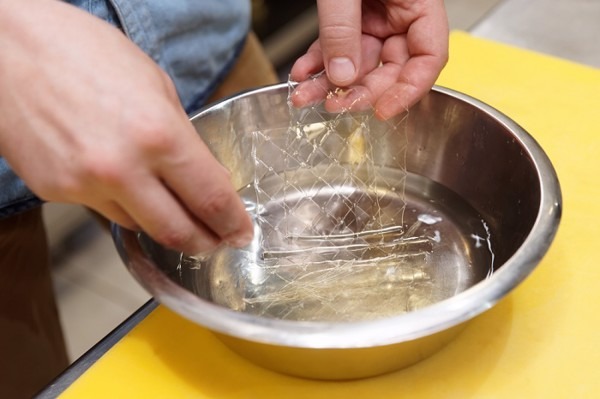
Harnessing Gelatin Sheets
- Hydration: Prior to use, immerse gelatin sheets in cold water for about 5-10 minutes. The sheets will absorb water and transform into a pliable, supple state.
- Drain: After soaking, gently wring out excess water from the sheets. You can do this by hand or with a clean cloth.
- Dissolution: Dissolve gelatin sheets by gently heating them over low flame or utilizing a microwave for a few seconds. Ensure you heat them just enough for the gelatin to fully dissolve in water, avoiding prolonged exposure to heat.
- Setting: Once your gelatin sheets have dissolved, incorporate them into your dish and allow it to chill for the gelatin to solidify. Witness the transformation as your creation attains a velvety, ethereal texture.
- Unmolding: For those employing gelatin in crafting delectable agar desserts or flan, after setting, you can effortlessly unmold them without undue hassle.
Making the Most of Gelatin Powder
- Hydration: Gelatin powder must be hydrated in cold water before use. To do this, add the powder to a small pot containing cold water and gently heat it. Stir until the gelatin powder is completely dissolved.
- Proceed with the Recipe: Once the gelatin powder has dissolved, you can proceed with the subsequent steps of your culinary endeavor. This may involve mixing the gelatin with other ingredients or heating it in water before adding it to your dish.
Crucial Considerations for Gelatin Powder Usage
When working with gelatin powder, there are several vital considerations to heed, ensuring culinary triumph:
- Storage Savvy: Store gelatin powder in a dry, cool place, shielded from direct sunlight. Exposure to moisture can render gelatin powder clumpy and unusable.
- Usage Dosage: Adhere to the recommended usage dosage of gelatin in each culinary recipe. Too little gelatin can lead to inadequate solidification, while an excess can render your dish overly dense and rigid.
- Avoid Adding to Boiling Mixtures: Once you’ve successfully dissolved gelatin powder in cold water, ensure that the liquid in your culinary vessel isn’t boiling when you add it. Boiling can strip gelatin of its gelling properties.
- Interchangeability: In many instances, you can interchange between gelatin sheets and gelatin powder in recipes. However, follow the recipe instructions for the appropriate substitution ratio.
With these insights and techniques at your fingertips, you’ll wield the mystique of gelatin with confidence and culinary finesse, elevating your dishes to new heights of gastronomic delight.
Side Effects and Who Should Exercise Caution with Gelatin
While gelatin serves as a versatile ingredient in both culinary and beauty realms, it’s essential to take note of some potential side effects and individuals who should exercise caution or avoid its use.
Side Effects of Gelatin
- Distinct Odor: Gelatin possesses a unique, somewhat distinctive odor that some individuals may find off-putting upon contact. However, rest assured that this odor typically doesn’t linger and won’t impact the final flavor of your dish once the gelatin has been dissolved and set.
- Feeling of Fullness and Digestive Discomfort: Gelatin, being a substance with thickening and elastic properties, can lead to a sensation of fullness and digestive discomfort when consumed in large quantities. This may be particularly evident when gelatin is used in substantial amounts or in densely textured dishes.
Individuals Who Should Exercise Caution with Gelatin
- Those with Severe Liver or Heart Conditions: Gelatin undergoes processing in the liver, so individuals with severe liver or heart conditions should limit or consult a physician before consumption. Liver and heart issues may hinder the effective processing of gelatin or place additional strain on the body’s systems.
- Individuals with Bleeding Disorders: Gelatin can influence the blood clotting process. Therefore, individuals with bleeding disorders such as von Willebrand disease or hemophilia should restrict gelatin usage or seek medical advice before consumption. Gelatin has the potential to prolong clotting time, posing challenges in situations where rapid clotting is needed.
- Those with Kidney Impairment: Gelatin is excreted through the kidneys. Consequently, individuals with kidney impairment or kidney health concerns should limit gelatin usage or consult a physician. Gelatin processing may impose unnecessary stress on the kidney system, leading to undue strain on individuals with kidney health issues.
- Pregnant and Nursing Individuals: If you are pregnant or nursing, it’s advisable to seek medical advice before using gelatin. While gelatin is a common food ingredient, its effects on fetal development or the growth of young infants may not be entirely clear. Consulting a physician is a safe way to ensure the health of both you and your baby.
By heeding these insights and exercising caution where necessary, you can harness the versatility of gelatin while safeguarding your well-being and the well-being of others in your care.
Where to Buy Gelatin Powder in Hanoi?
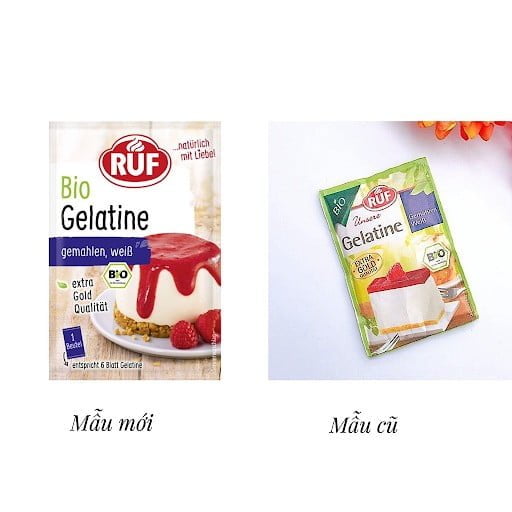
Now that you know the benefits of gelatin, you’ll likely want to purchase some. If you’re wondering where to buy gelatin powder in Hanoi, consider these six reputable stores below. They have high sales volumes and receive positive feedback from customers.
BÁCH HÓA KHUÔN RAU CÂU
A shop specializing in wholesale and retail baking supplies
Contact Information:
- Hotline: 0904.883.999
- ZALO: 0988.663.896 (message via Zalo only)
Store Address:
- Currently Operating Branch: 263 Alley 42 Thinh Liet, Hoang Mai, Hanoi (end of Giai Phong Street)
Purchasing Method: This shop primarily operates online through Shopee and does not have a physical store. If you want to visit the shop in person, be sure to make an appointment or contact them in advance.
- Link shopee: Here
ĐỒ LÀM KEM: A shop specializing in various baking ingredients and supplies
Store Address: No. 19 Alley 1/14 Lane 1 Dai Dong Street, Hoang Mai District, Hanoi
Contact Information:
- Phone: 098.567.8015
- Email: hoanblack108@gmail.com
- Link Sendo: Here
HANZOMART – MOTHER AND BABY SUPERMARKET
Specializing in tools & baby food
Store Addresses:
- Branch 1: 26 Thái Thị Bôi – Đà Nẵng
- Branch 2: 428 Hoàng Diệu (two-way street), Hanoi
- Working Hours: 8:00 AM – 9:00 PM
Contact Information:
- Phone Number: 0934 780 333
- Link Shopee: Here
THẢO NGUYÊN HOME
Thảo Nguyên Home specializes in products for new mothers and utility items for small homes.
Store Address: TT6.2B.88 New Dai Kim Urban Area, Hoàng Mai, Hanoi
Contact Information:
- Phone: 0919.050.189 (Viber/Zalo/Imess)
- Fanpage: Thảo Nguyên Home
- Website: http://thaonguyenhome.vn
- Shopee: Here
GABI – BALING AND MORE
Specializing in molds, baking trays, baking tools, and various product packaging…
Store Addresses:
- Main Office: 168 Alley 360 Xã Đàn ( Trung Phụng Street ), Đống Đa, Hanoi
- Branch 2: 47 Chùa Quỳnh Street, Hai Bà Trưng, Hanoi
- Working Hours: 9:00 AM – 8:00 PM
Contact Information:
- Hotline: 034.471.9224
- Email: gabi2018.vn@gmail.com
- Shopee: Here
BIBOSHOP107
Specializing in beverage ingredients, featuring Korean spices, dining accessories, …
Fanpage: BiboShop
Contact Information:
- Hotline: 0983298292
- Email: qkhanh0109@gmail.com
- Store Address: 7Q38 Alley 160 Nguyễn An Ninh Street, Tương Mai Ward, Tương Mai District, Hoàng Mai, Hanoi
- Lazada: Here
FAQs
What is gelatin powder?
Gelatin is a type of protein extracted from the collagen in animal bones and skin or from plants like red algae and fruits. It helps form a gel in water and is commonly used in food processing.
What are the common forms of gelatin?
The two common forms of gelatin are gelatin powder and gelatin sheets.
What are the health benefits of gelatin?
Gelatin contains valuable amino acids that help treat various ailments, support skin, hair, nails, aid in joint recovery, improve sleep quality, and offer many other benefits.
How can gelatin be used in cooking?
Gelatin is often used in baking, making desserts, setting food, and is a key ingredient in bone broth, gummy candies, jelly, and many other dishes.
Where can I buy gelatin in Hanoi?
You can purchase gelatin at stores like BÁCH HÓA KHUÔN RAU CÂU, ĐỒ LÀM KEM, SIÊU THỊ MẸ VÀ BÉ HANZOMART, THẢO NGUYÊN HOME, GABI – BALING AND MORE, and BIBOSHOP107.
Above are the addresses of some stores that sell gelatin on e-commerce platforms such as Shopee, Lazada, and Sendo. You can refer to them when you’re unsure where to buy gelatin in Hanoi. We hope you find this information helpful for purchasing gelatin for your family.
Source: Here

